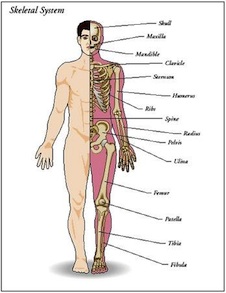
Most people don’t think depression affects any other organ besides the brain. However, recent studies are finding that depression affects a host of other disorders. Among the conditions are these, just posted from a Johns Hopkins newsletter that I subscribe to:
* Headache. Chronic headaches, particularly tension headaches, occur frequently in people with depression and anxiety. They’re most likely caused by contracting the muscles of the scalp and neck, a common physical reaction when you’re under emotional stress.
* Diarrhea and constipation. Anxiety is often linked with irritable bowel syndrome (IBS), which can manifest itself as diarrhea or constipation. Some experts estimate that 60% of people with IBS have a mental health disorder, and about 60% of those have generalized anxiety disorder. It’s possible that anxiety may make you more aware of spasms in your colon or that anxiety affects the immune system and may trigger symptoms of IBS.
* Nausea and vomiting. Nausea (as well as vomiting) may be considered a symptom of mood disorders. One large study found that 41% of people who had major complaints of nausea in the past year were then diagnosed with an anxiety disorder and 24% were diagnosed with depression.
* Heart disease. People who become depressed after a heart attack are at increased risk for a second, fatal heart attack, while people without heart disease who become depressed increase their risk of developing or dying of heart disease. The heart-mind link may also include anxiety, autonomic nervous system dysfunction, inflammation, and behavioral issues, as people who are anxious or depressed are less likely to engage in heart-healthy activities like exercising and healthy eating and more prone to weight issues and smoking.
* Osteoporosis. People with major depression often have lower bone mineral density, a measure of the strength of your bones, than those with no mood disorders. Selective serotonin reuptake inhibitors (SSRIs) are associated with increased fracture risk, but there’s growing evidence that depression itself may put bones at risk. One theory is that depression may cause increased levels of a neurotransmitter that interferes with bone building.
* High blood pressure. Evidence suggests that chronic anxiety may lead to high blood pressure. Anxiety is likely to produce temporary spikes in blood pressure rather than persistent hypertension. Frequent spikes can damage your blood vessels, heart, and kidneys and increase your risk of a stroke.
Illustration by Faqs.org.
* Click here to subscribe to Beyond Blue and click here to follow Therese on Twitter and click here to join Group Beyond Blue, a depression support group. Now stop clicking.

